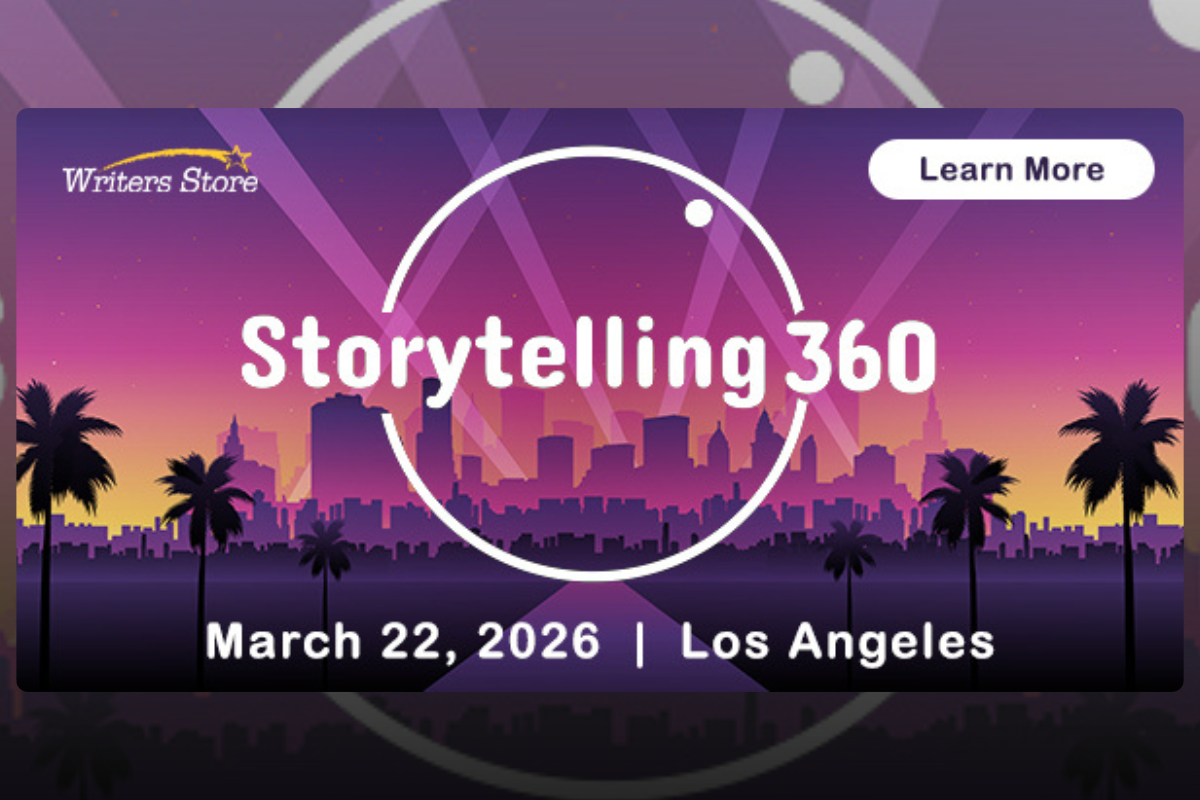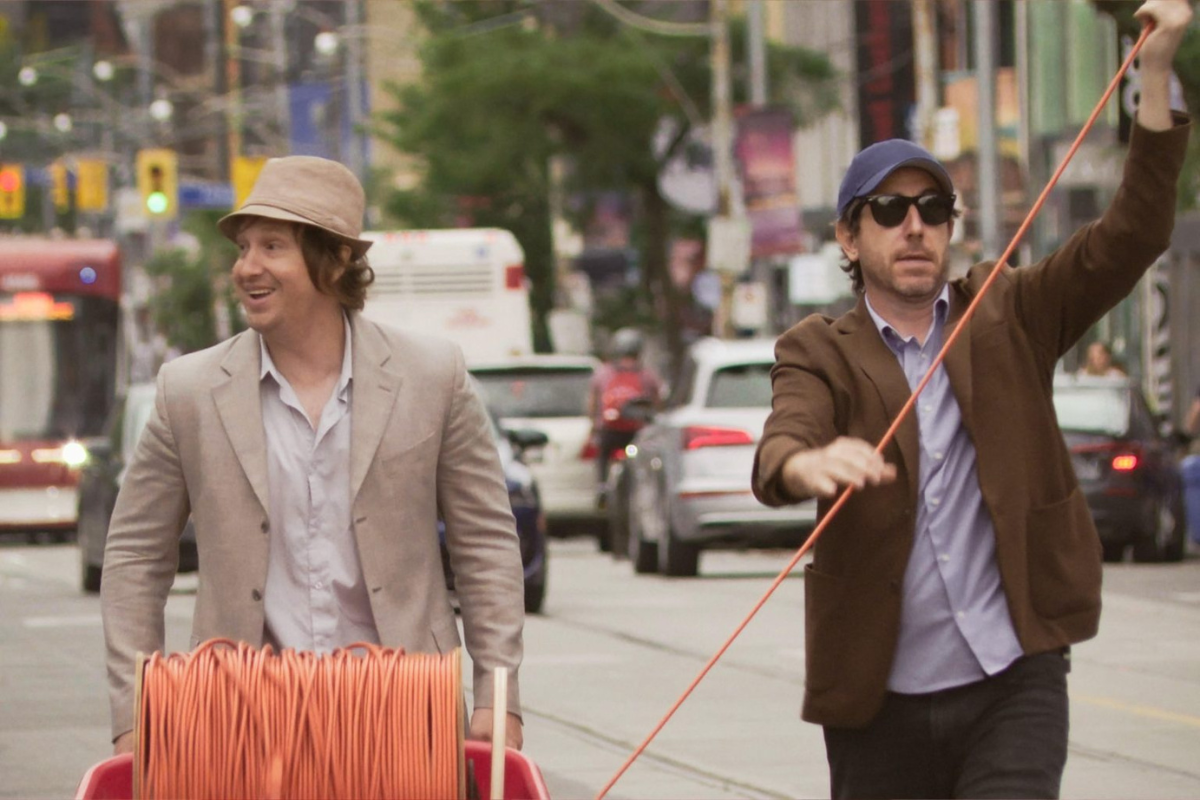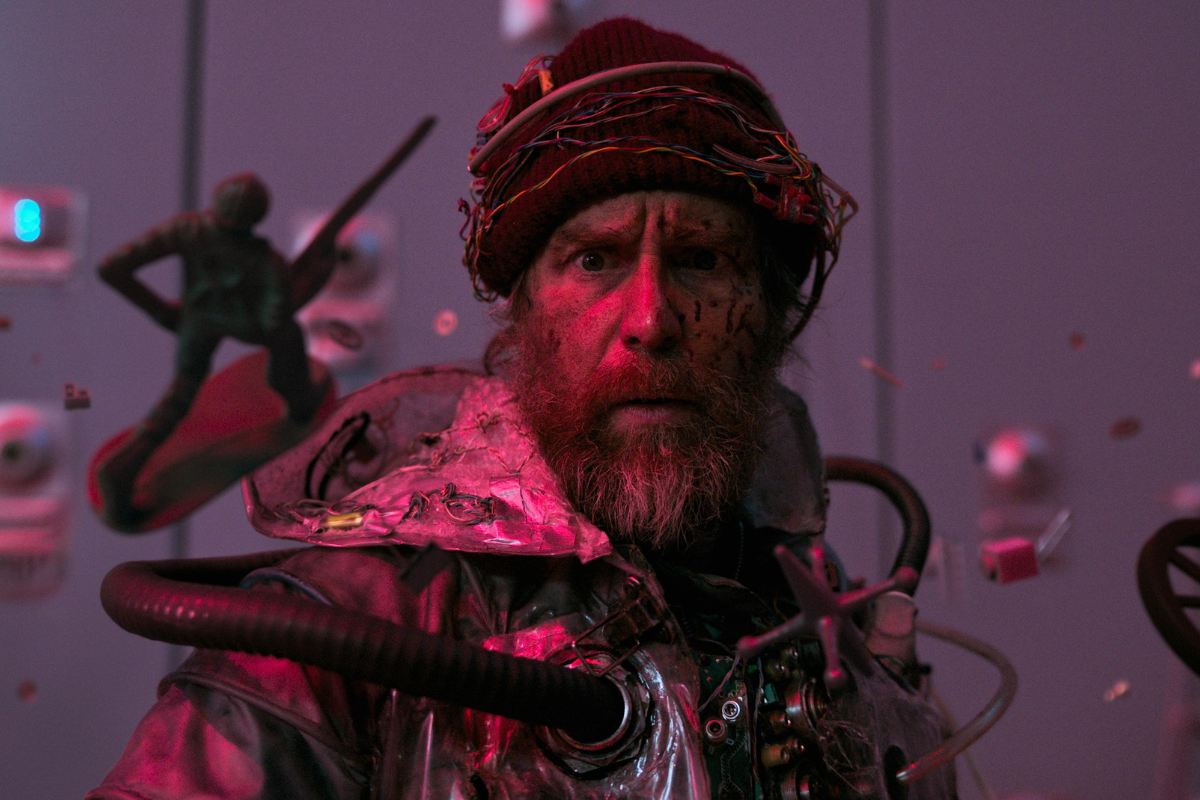The Three Stooges: Yucking it Up with Peter Farrelly
When it comes to outlandish comedies with a whole lot of heart, the Farrelly Brothers are bonafide kingpins. In 1994, they introduced audiences to Harry and Lloyd, two good natured,…
When it comes to outlandish comedies with a whole lot of heart, the Farrelly Brothers are bonafide kingpins.
In 1994, they introduced audiences to Harry and Lloyd, two good natured, but incredibly stupid friends (played by Jim Carrey and Jeff Daniels), who partake in a hilarious cross country caper in Dumb and Dumber. In There’s Something About Mary (1998), they brought down the house with the story of Ted Stroehmann, a thirtysomething loner who attempts an awkward reunion with his high school love many years after their dreadful prom date. And most recently, they deliver a comedic throwback to The Three Stooges (2012), a labor of love with a modern flair.
“I never took a writing class, wasn’t an English major, and had read about 5 books in my life. But I quit my job, started writing, and it all fell into place,” said Peter Farrelly, recalling his transition to writing. As a traveling salesman for U.S. Lines, Farrelly found himself creating numerous road stories, escaping to the nearest library to write his first novel, Outside Providence (1988), and eventually, resigning to pursue a writer’s education at Columbia University.
Upon graduation, Peter teamed up with his younger brother Bobby, and together, they began writing screenplays and honing their own unique voice, i.e. stories that take place in Rhode Island, feature sports figures, depict disabled people in a reverent light, and of course, involve the use of slapstick and toilet humor.
In this week’s DVD release of The Three Stooges (7/17), the Farrelly’s tackle their most audacious project to date. Says Farrelly, “This script was the hardest script we’ve ever had to write because of all the rules. We had to be true to The Stooges in every way.” Yuck yucks, eye pokes, and head slaps all included.
SM: When did you realize you wanted to become a writer?
PF: Well, we weren’t those kids running around with cameras when we were young, doing mini movies. My brother and I were pretty atrocious in school. We weren’t bad kids in the sense that we were getting into trouble, but our grades were just deplorable. And it was a real problem because my father is a doctor and my mother is a nurse practitioner and they were horrified. They didn’t know what to make of it because they had never seen grades like that on a consistent schedule.
I scored well on the standardized tests, but was a huge under achiever. And they were always pushing us and trying to get us to do better.
At the beginning of every semester in high school, I remember thinking: “This is it. This is when I’m finally going to buckle down. This is when I’m going to focus.” So, I’d get my notebook out, I’d pay attention to the teacher, and start writing notes only to realize that I’d been staring out the window for 25 minutes!
I’d be thinking about the girl sitting 3 seats in front of me and how nice it would be if after school, she was at a bank. And I went to that bank. And there was a bank robbery in progress and we were all held hostage. They were going to kill her, but I said: “No, you’ll have to kill me instead.” But they refused to kill me because I’m a hero. I protect her, we escape, and it’s all over the papers. She’s in love with me.
These scenarios would play over and over in my head. And then, at the end of the semester, I’d get a C or a D.
In college, I was actually an accounting major. But that’s just because on my first day of college, I met with an advisor and he asked, “What’s your major?” I replied, “I dunno.” He said, “Well, you have good math scores. How about accounting?” And I said,”Okay.” So, I stuck with accounting for four years. Did terrible. And the day I got out of college (I graduated in 4 years with a 2.0), my father said, “So what now, Pete?” I told him I have no clue. And he said, “Goddamn it! When I was six, I knew I wanted to be a doctor! You’re twenty two and you have no idea what you want to do?”
So, I went off and became a salesman in Boston. I enjoyed the camaraderie, the guys I was working with. They gave me a company car and an expense account. It was a fun time running around Boston in the early 80s. But after a couple years, it wore thin. I wasn’t good at it. It wasn’t in my heart. And I wasn’t doing as well as I should have.
During that time, I would take these long trips to Maine, New Hampshire, and Vermont for sales. I’d drive up there by myself to meet customers. Along the way, I’d be running these stories over and over in my head. And started thinking, maybe I should be a writer? So, I got a notebook and started writing. I did this for about a year. The more I wrote, the more I enjoyed it. And found myself breaking away from work to go to the library to write. Writing at night, not going out. Writing, writing, writing.
And finally, when I was 24, I knew I had to give it a shot. I knew it might be hopeless, but I had to give it a crack. I had never taken a writing class, wasn’t an English major, had read about 5 books in my life. But I quit my job, started writing, and it all fell into place.
SM: A lot of siblings have rivalries or fights and don’t always get along. How would you describe your relationship/collaboration with your brother?
PF: My brother and I have always been best friends. I’m exactly a year-and-a-half older, to the day. He’s June 17th, I’m December 17th. We shared a bedroom and always had the same friends. From the earliest memory, we’ve been more like twins than older brother, younger brother. We had the exact same sense of humor. And we always made each other laugh.
It was just natural that when I started writing, I would send him stuff and ask for his opinion. He would say this is good, this sucks, or you could make it funnier if you did this. In fact, the first three screenplays I sent to him, he gave me really good notes. Kind of like a really good producer would. And I would make the changes.
At the time, I was getting more jobs, selling screenplays, and doing alright. But he wasn’t doing very well. He was a salesman and having trouble with his job. So, I asked him, ‘why don’t you quit and join up with me? We’ll write them together." And since that time, we’ve never looked back.
SM: The Three Stooges was a passion project, in the works since the mid-90s. How influential were they on your sense of humor?
PF: They were extremely influential, especially since the town we grew up in (Cumberland, RI) didn’t have a movie theater. It was about 20 minutes from Providence, and so, you only went to one or two movies a year. A couple of times a year, your parents would ask you to hop in the station wagon, drive to Providence, and take you to The Sound of Music, Mary Poppins, or whatever.
So, we were really schooled on television. And the shows that influenced us the most were “The Three Stooges” and “The Andy Griffith Show.” “The Andy Griffith Show” was our biggest influence because you were guaranteed a laugh every time you watched that show. And, there was a little heart in it.
When we started writing, the Zucker Brothers came into play. We loved Airplane, Top Secret!, The Naked Gun movies, Ruthless People, etc. But we always felt that our style of humor was different from theirs. They’re absolutely great and they were very influential for us, but three quarters of the way through one of their movies, we felt as though you didn’t really care what happened. As much as you were laughing your ass off, you didn’t care whether the airplane crashed.
So, our thinking was that if you can make people laugh for an hour and a half AND make them care about the people legitimately where they feel something in their heart, it would be a home run. We’ve tried to do that just like “The Andy Griffith Show.” And the laugh part from The Stooges.
SM: You co-wrote The Three Stooges with Mike Cerrone. What was his role in the writing of the script?
PF: Mike Cerrone is a Stooge scholar. He’s a genius of all things Stooges. He went to Yale and knows every Stooge episode inside and out. In fact, sometimes we’d be talking and would wonder, “What was that flap they’d had where Moe did this, somebody grabbed a lamp and then something hooked onto his pants?” And Mike would say, that was ‘Cash and Carry.’ About six minutes in.
He could pinpoint and tell you exactly where to go. He knew The Stooges inside and out and was our barometer when we were writing it.
SM: There are 190 shorts, 30 features films, a television movie, comics, cartoons, and a video game. How did you go about creating a unique story while keeping the spirit of the old?
PF: Well, we didn’t want to do their stuff over because we thought that was a losing proposition to try and duplicate what they did. We wanted them to look the same, talk the same, act the same, but we wanted all new material. So, we’d watch two or three episodes every morning. We’d write and come up with our own stuff. And sometimes, we’d come up with really funny stuff and Mike would say, “No. The Stooges would never do that.” So, we’d have to change it.
I have to give Mike a lot of credit. He was a huge influence and kept us even keeled while writing this thing. People always ask us, how do you keep writing after 10-13 years of trying to get it made? But we simply weren’t going to quit because we put too much time into it. This script was the hardest script we’ve ever had to write because of all the rules. We had to be true to The Stooges in every way.
It’s not like writing any other movie where you can go in any direction you want as long as it’s funny. With this, we had rules to abide by and we fought really hard to have the script turn out the way it did.
SM: It's widely said that if you can write comedy, you can write anything. Do you ever feel pressure or desire to expand outside of comedy and tackle something dramatic? A thriller or a western? The next Batman movie?
PF: Comedy is what we’re most comfortable with; however, I imagine that we’ll do something dramatic and something completely outside eventually. That said, The Stooges was a huge stretch for us because it had a lot more choreography and action than we’ve ever done. And it was a much more difficult shoot than anything we’ve ever done by far.
We don’t really plan ahead. I don’t have a 10 year plan where I’m going to do this and that. When I get done with something, usually, I turn my attention to something that’s been percolating for a year or two while I’ve been doing this other thing and I want to turn my attention to that.
So yes, we probably will, but we’re not doing it yet.
SM: What things are you most inspired by? What makes you laugh?
PF: All things Seth MacFarlane. “Family Guy” kills me. I can watch “Family Guy” over and over. I liked Ted a lot. I like Sacha Baron Cohen. Anything he does, I really love. I’m a big Apatow fan and all those guys. Their movies can be hit and miss. Some do really well and some don’t. But even the ones that don’t do well, I like. They’re way better than the crap that was out fifteen years ago. And how could I forget Larry David?
SM: The sequel to Dumb and Dumber has been hinted at for quite some time. And it seemed to get some momentum earlier this year. Is there anything you can tell us about the sequel?
PF: Well, we’ve never done a sequel, although we’ve had plenty of opportunities. A while back, they asked us about doing There’s Something Else About Mary? And I said, “Unless you give Mary a cock, I’m not interested.” I simply didn’t want to do it because it wasn’t a natural sequel. The movie ended. If you want to do something outrageous, I’m on board. But I’m not going to do another Mary because it just didn’t feel right. It felt like a money grab.
But Dumb and Dumber always felt like a natural sequel because we left them exactly where we found them at the beginning of the movie. You could’ve done five of those movies. But Jim went off and was doing other things. And we said, we’ll do it when Jim is ready.
When the studio came to us with Dumb and Dumberer, we said absolutely not. No way. Every sixteen year old kid is dumb. The idea is that they’re 40 and they’re dumb. And we passed on that too.
When Jim came around and finally wanted to do a sequel, we all cut deals with New Line to do the new movie (Dumb and Dumber To). New Line did the original Dumb and Dumber; however, they’re now currently owned by Warner Brothers. So, we handed in the script, New Line gave it to Warner Brothers, and Warner said they wanted to do their own deals. When they tried to renegotiate Jim’s deal, he got upset and walked away.
All in all, I think it’s going to be resolved, but that’s what happened and where we are.
Top screenwriting and film publication, founded in 1989, published by Active Interest Media. Twitter: @scriptmag







